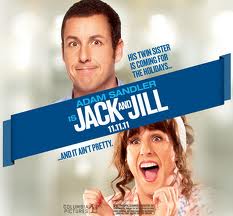"You mean to tell me, I don't have to use my hands?"
Candide is a riotously funny book, but the entire thing consists of droll observations and, by at least one count, seven jokes that someone would politely smile at if you were to recite them at a cocktail party. In fact, as you move closer and closer through history to the current century, you'll find that the jokes start piling up to the point where Saturday Night Live is comprised entirely of pithy one liners and fourth wall breaking giggles. It's as if we can't enjoy comedy unless we never have a chance to stop laughing.
We stopped laughing about nine years ago.
A page from your sitcom spec script with only one or two jokes is going to be thrown in the trash like invitations to a party at Carrot Top's homeless shelter. That is, unless you can find a way to throw in another pop culture reference or three that can be mined for laughs.
So why is that? Novels are much, much longer now in 2012 than they were in 1912, despite what those hefty tomes on your English professor's bookshelf suggest. Fifty thousand words was plenty a hundred years ago, but now consumers aren't satisfied unless they get at least 1,800 pages.
Why do we tl;dr our comedy then? Unfortunately, and I hope I haven't led you on like Tucker Max at a sorority party, I'm not a social psychologist and I have absolutely no evidence for any of the next five hundred words or so. But I do have ideas.
*Our attention spans are short. Really short. Odds are that you have at least three browser tabs open right now. Even as you read this, you are wondering if your significant other has gone to sleep so you can Facebook stalk your ex.
*We really hate coming down from a high. If you pick up Les Miserables and sit down to read, you enter with the expectation that you are going to be depressed. It's in the title. When you watch a Michael Bay movie, you expect everything to be blowing up all of the time.
So when the talky-bits start, you fidget and look around to catch people playing Words with Friends at the theater.
With comedy, you expect to laugh. We don't have "very special" episodes any more for the same reason no one gets a colonoscopy from a camera attached to a katana. It isn't fun, and there is always the threat of rectal bleeding.
*People digest information faster. Esprit d'escalier was a huge problem for earlier generations. Now? That average fifteen year old has at least five comebacks for any given situation thanks to her parents' Adam Sandler films.
She also has terrible taste in movies.
Whereas the Renaissance and medieval audience for comedy could reliably expected to walk out of the dirt, mud, and excrement soaked theatre laughing because they finally got the bit about the goat, modern audiences already knew the punchline before the pudgy friar finished talking.
*In fact, if you haven't noticed, the proliferation of "in-jokes" is exponential. The rise of viral media and the omnipresence of pop culture virtually ensures that at least a majority of a show's audience knows exactly why it is funny to have the female lead eye a blue plastic cup warily in front of another women while glancing nervously at the camera.
*There are more jokes. Blame twenty-first century irony for a lot of this, because self-referential humor exploded around the time that Family Guy was brought back from cancellation purgatory. That isn't to say it didn't exist before, just that you can't buy a pack of smokes without running into nine terrible referential lines any more.
"Wil-lem. Da-foe. Wil-lem. Da-foe."
Moreover, it stands to reason that if something was funny to our ancestors, say, someone getting whacked in the head, that it might linger as humorous for most of us today. Sure, a lot of the comedy from ancient Greece is as unintelligible as George Lucas' dialogue, but just about everyone knows to laugh when Oedipus finds out that he's been sleeping with his mom, right?
*Expectations have been raised. I'm not bemoaning the death of subtlety in humor. When I read Christopher Moore, I'm not sad because I think Vonnegut did it better. In many cases, the trend has produced increasingly clever writers who are forced to work and demonstrate actual talent instead of a thin veneer of sarcasm. But, more often than not, comedy is now a team effort. Even the stand-ups, working the wasteland of the washed over nightclub scene, have teams and workshops in order to come up with enough material to fill a ninety minute special they'll probably never perform.
*Of course, some of it is just awful. I can't stomach the thought of being forced to watch most of NBC's current line-up, and Fox has degenerated to the point that I couldn't find a use for it in the smallest room of my house.
*If you laughed at the last comment, you know why I miss sophisticated humor. If you didn't, you probably don't know what all the fuss is about. More than likely, Shakespeare would enjoy most of what we find on television and in the theater. His ability to adapt to the changing taste of his audience is legen, wait for it.
"Dary. He's going to say, 'Dary'."
But however much the Bard gets out of Barney, he would rue the day we ever cloned him every time he sees a new Happy Madison release.
Without saying a word, Katie turned and left the room. She got in her car and drove to the teleportation pad.
Her last words before disappearing were: "I swear, I'll never disagree with an OT again."







No comments:
Post a Comment